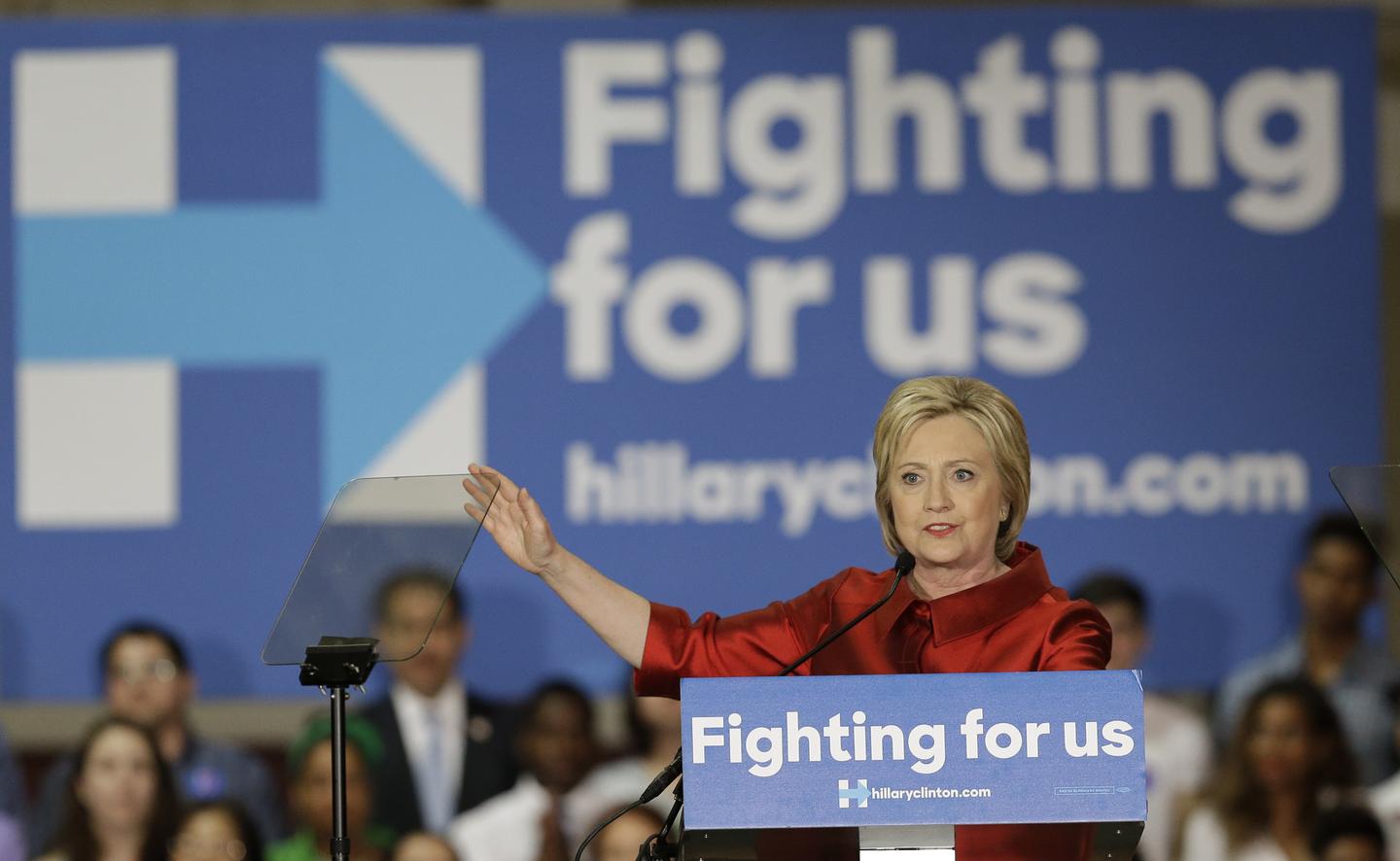Ken Thomas & Julie Pace
The election calendar may have Democrats voting next in South Carolina, but Hillary Clinton and Bernie Sanders are eyeing bigger prizes in March, a month that will determine whether the Vermont senator can keep pace in the White House race.
Clinton shook off some of the anxieties shadowing her campaign with a solid victory in Saturday’s Nevada caucuses.
The results offered a glimpse of her strength with black voters. They are a crucial group in South Carolina, which holds its primary this coming Saturday, and in other Southern states with contests on March 1, Super Tuesday.
Sanders has yet to prove he can consistently expand his base of support beyond white liberals and young voters. His campaign cited progress with Latinos in Nevada, but his advisers are clear-eyed about the challenges on Super Tuesday. They are mapping out plans to stay close to Clinton in the delegate count until the race turns to friendlier territory later in March.
“Because we can do the long game, once we get past March 1, the calendar changes dramatically,” said Jeff Weaver, Sanders’ campaign manager. “It’s frontloaded for her, but we have the ability to stay in the long game.”
More than half the 2,383 delegates needed to win the Democratic nomination will be determined in the 28 states that hold primaries and caucuses in March.
Clinton and Sanders should have enough money to stay in the race for weeks afterward, but the delegate tally at the end of the month could make the results inevitable.
For Sanders, strong showings in March are more important because of Clinton’s lead with superdelegates – the party leaders who can support any candidates regardless of how their states vote.
Clinton has captured the support of 451 superdelegates compared with Sanders’ 19.
Underpinning Clinton’s strategy are the painful lessons of her 2008 primary loss to Barack Obama. Clinton’s campaign failed to account for the Democratic Party’s system of allocating delegates proportionally in voting contests, and then watched superdelegates, who can shift their allegiances, move toward Obama as the campaign stretched late into the spring.
Under the proportional system, avoiding overwhelming losses that can dramatically shift the delegate totals is almost as important as outright victories.
“Other than Vermont, I don’t see a single state where Hillary Clinton is going to lose in a blowout. I see a lot of states where Hillary Clinton will probably win by a lot and that equals real delegate yield,” said David Plouffe, the architect of Obama’s 2008 campaign and a Clinton supporter.
“I know that’s not sexy, but I think that’s how the Clinton campaign has structured their campaign this time after some of the lessons from eight years ago.”
Few observers had foreseen Sanders as a serious threat to Clinton. But he has energized young people, working-class voters and liberals with his impassioned calls for breaking up big Wall Street banks and making tuition at public colleges and universities free.
“I think the more people know our record, the better we do,” Sanders said Sunday on CBS’ “Face The Nation.”
Sanders’ prolific online fundraising has given him staying power and he has pledged to take his campaign into the Democratic convention in July.
While Sanders outraised Clinton in January, a new fundraising report showed he went on a spending spree at the start of the year and ended last month with about $15 million in available cash – less than half of Clinton’s cash on hand.
That’s enough to stay competitive, and Sanders’ team is eyeing delegates in March 1 states such as Massachusetts, Minnesota, Oklahoma and his home state. He also hopes to flex his muscles in two other states with contests that day, Colorado and Virginia, and that could help him make the case that he is more electable than Clinton.
Sanders’ campaign has cited entrance polls of Nevada caucus-goers showing him doing better than Clinton among Latino voters. But the high margin of error in the polls makes it impossible to say with confidence whether either candidate held a lead among the group.
While Sanders was campaigning in South Carolina on Sunday, he planned to be in Massachusetts for a college rally and campaign in Norfolk, Virginia, on Tuesday.
Clinton also was spending time in Super Tuesday states. She flew from Nevada on Saturday to Texas, a huge delegate prize, for a late-night rally in Houston. She planned to raise money in California and then campaign in South Carolina.
Beyond Super Tuesday, Clinton and Sanders are looking ahead to the March 15 contests in Florida, Illinois, Missouri and Ohio. Big wins in those states for either candidate would put the nomination within sight.
Clinton’s support among black voters could pay dividends because of the way Democrats award high-performing congressional districts with a greater share of delegates.
Many of the most delegate-rich states have large minority populations, including Texas, Georgia, Alabama, Illinois and Florida, giving Clinton an inside track to accumulate delegates in March.
 Geostrategic Media Political Commentary, Analysis, Security, Defense
Geostrategic Media Political Commentary, Analysis, Security, Defense





